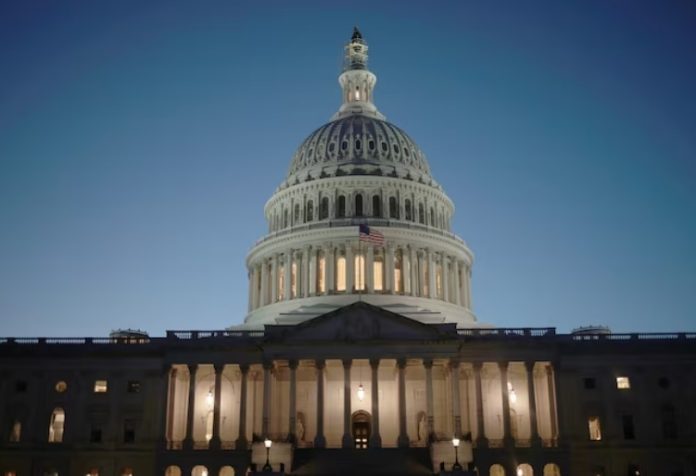The Senate on Wednesday overwhelmingly passed a defence policy bill for the 2024 fiscal year. As a result, the House will consider the sweeping $886.3 billion National Defence Authorisation Act on Thursday.
The vote came after the bill cleared several final hurdles, including an objection to a four-month extension of controversial surveillance powers and Democrats’ withholding of a 3,000-page conference report on the National Defence Authorisation Act. Senators passed the conference report by an 87-13 margin.
The compromise plan ended up receiving strong bipartisan support on the passage vote, which came a week after the language was released.
On Wednesday, Senate Majority Leader Chuck Schumer, D-S.C., on the floor welcomed the NDAA’s approval of a 5.2% pay raise for U.S. military personnel and authorisation of deterrence programmes in the Indo-Pacific region, including aid to Taiwan and support for a security agreement between the US, UK and Australia known as AUKUS. Schumer claimed:
“At a time of huge trouble for global security, doing the defence authorisation bill is more important than ever. Passing the NDAA enables us to hold the line against Russia, stand firm against the Chinese Communist Party and ensure America’s defences remain state of the art at all times.”
Senate Minority Leader Mitch McConnell (R-Ky.) also praised the bill for authorising pay raises for the military, as well as requiring new oversight mechanisms for security assistance to Ukraine. McConnell also stressed that the bill authorises spending on the production capacity of the US defence industrial base, on Israeli missile defence and on weapons needed in the Indo-Pacific region. McConnell added:
“This year’s NDAA recognizes the need to strengthen America’s position in the strategic competition with China through targeted improvements in critical capabilities from long-range fires to anti-ship weapons to modernizing our nuclear triad.”
Ahead of Wednesday’s vote to pass the bill, senators stumbled as Sen. Michael Bennet (D-Colo.) kept lawmakers in Washington for a day trying to reach an agreement on a stalled $110.5 billion supplemental homeland security funding package. On Wednesday afternoon, Bennet allowed the Senate to move forward on the bill a few hours later, lifting his ban on passing the NDAA.
Then, ahead of the vote, lawmakers blocked an attempt by Sen. Rand Paul (R-Ky.) to remove from the NDAA a temporary extension of Section 702 of the Foreign Intelligence Surveillance Act, which authorises the collection of data on foreigners’ communications abroad. Paul said on the Senate floor:
“They’ve known for five years (Section 702) was going to expire at the end of this year and yet they just want to punt it with the hope that they’ll never have to debate it. Extending this section 702 robs Congress of the ability to make reforms now and likely robs Congress of the opportunity to make reforms anytime in the next year.”
Lawmakers voted 65-35 in favour of repealing Paul’s requirement.
The bill will be taken up in the House on Thursday, suspending the rules, which requires a two-thirds majority of lawmakers present and voting to pass.
The final version of the bill is more moderate than the previous version, which was approved in July largely along party lines. The original House bill contained several Republican-backed amendments on hot-button social issues. But the conference plan stripped them out of much of it, leaving in place some limited efforts to curb the Pentagon’s diversity, equality and inclusion initiatives.
Still, Senate Armed Services Committee member Roger Wicker, R-Miss. sought to highlight the “conservative victories” GOP members have achieved, such as salary caps and restrictions on hiring Pentagon DEI employees. Wicker told reporters Wednesday morning, referencing negotiations among Armed Services committee leaders:
“Again, this was agreed to at the ‘Big Four’ level and represents some concessions on the part of Democrats.”
